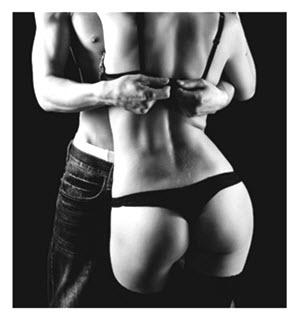 Sex. The word conjures a depth and breadth of images, doesn’t it?
Sex. The word conjures a depth and breadth of images, doesn’t it?
Love. Now that word is even more emotionally charged for some of us.
Confusion? Sex versus lovemaking is one area in which differing interpretations reign, leaving us very much confused about what we want, what we feel, and where we stand in a relationship — newly blossoming or many years married.
As I am choosing a little “away” time from my usual device-attachment, I hope you will find this exploration of sex versus lovemaking, written more than five years back — with a few “updates” — an enjoyable and even provocative diversion.
Ah, Yes. Sex…
Are you ready for a few questions? Here goes…
Did you get lucky this week? Last weekend? Or should I say, did you score? Did you get any? Did you hook up?
Perhaps you’re more comfortable if I ask: Did you make love?
No, I am not prying into your sex life. Yes, I am pointing out that whatever we call it, sex gets our attention. And, great sex is great, isn’t it?
What? Not necessarily? Not exactly? Does it depend on the circumstances? Then tell me, do our distinctions in terminology serve us, do they, in fact, complicate matters?
When it comes to sex and love, these days, we’re all confused. I can’t help but wonder if the problem is an issue of language, at least in part, and an implicitly assigned value system we ascribe to the words we choose.
 Yes, value system. Aren’t we living our lives according to a hierarchy of intimate encounters? Don’t we then judge, criticize or laud our interludes in their aftermath?
Yes, value system. Aren’t we living our lives according to a hierarchy of intimate encounters? Don’t we then judge, criticize or laud our interludes in their aftermath?
Rules, No matter What
When we’re young, any sexual contact is a “score” — and may also be a credential, an obstacle to overcome, a source of embarrassment, or an accomplishment. Good, bad or indifferent, sex is a constant preoccupation, not just in the minds (and loins) of the young.
Naturally, the caveats and exceptions to the rules of engagement are many. They include socially acceptable age ranges, mutual consent, guidelines about power relationships (like boss-employee or teacher-student). There are cultural and religious boundaries that reserve intimacy for marriage, there are taboos against incest, and we continue to debate and debase the impossible-to-unravel stigmas and myths around older man-younger woman, and older woman-younger man.
All that aside, “doing it” is considered a rite of passage. And once beyond that barrier, a vast area of self and other opens, and the real exploration unfolds.
Scorecard or Report Card?
So, returning to the essence of my original question — did you have sex this week, or did you make love?
And why is it that at age 30, “making love” may rate an A on the report card, but “having sex” — even if it was fantastic — only earns a B? What about relations after a long marriage, then divorce at 40 or 50? Will sex of any sort garner high marks from inquiring friends with no further qualification? Dare we explore further, asking if these assessments vary by gender?
 It seems we all swim (consciously or not) in a constantly shifting pool of approval (or not), a sort of system of standards tied to demographics, personal history, life stage, or all of the above.
It seems we all swim (consciously or not) in a constantly shifting pool of approval (or not), a sort of system of standards tied to demographics, personal history, life stage, or all of the above.
Must we really assign judgment to our assorted encounters — or authority to the judgment of others?
Great Sex is Great (Sex)
Some say yes to the carnal side of life. No further discussion warranted. The sexual aspects of any relationship — from a one night thing to a lifetime — are fundamental.
Some don’t ask these questions. Or, they pose them later in life, when they sense something is missing.
Others qualify their musings on the topic of flesh-on-flesh enjoyment; perhaps the diversity of sexual encounters before, during, and after long-term relationships enables them to do so. Their journeys have taught many shades of sexual expression — something beyond a simplistic mention of compatibility, not to mention a tally of partners, positions, and orgasms.
Some experience sex without emotional investment, and are fine with it. Desire is a given; acting on it, equally so. There is no “grading” (or degrading) of the experience in which friendship, tenderness, and shared comforts needn’t be banished from the bedroom because the word “love” isn’t spoken, or for that matter, felt.
And of course, we’re back to square one on the semantic soup (and underlying reality) inherent in that word, love — and all its variability in meaning to each individual.
A life without sexuality? For many, it’s not an option.
Lovemaking
The distinction between sex and lovemaking is vital to many men and women. They seek lovemaking — and want nothing else or nothing “less” — lovemaking representing a fusion of body and spirit in which they assume or ascribe feelings of love to sexual activities.
So what happens when we introduce splendid sex into the mix, though so many elements of “love” may seem to be missing? Do some of us confuse sex with love? Do we allow the pair bonding hormone oxytocin to cloud all common sense? Do we then call any instance of sex lovemaking, grade it with the long-awaited “A,” and hang on too tightly?
Does our morality only permit us to enjoy sexual contact if we use the word love, and thus the term “lovemaking?”
Must we be “in love” to “make love?”
Men, Women and Sexual Energy
I suspect that men and women grow similar in our inclinations as we gain experience, capable of recognizing the differences between sex with emotion and sex without. But then we’re back to individual perception, not to mention inclination.
Matters of an individual’s childhood, life history, personal needs, “nature.”
Of course we love great sex — but great lovemaking? Is that the brass ring, the fine bottle of wine worth the wait? The ultimate — for some of us more than others?
Do we change, evolve, shift what we want from sex as we ourselves, like that bottle of fine wine, take on more nuance and depth as we age?
 Are the differences in sexual versus emotional intimacy more keenly felt?
Are the differences in sexual versus emotional intimacy more keenly felt?
- What about sex as fun, or joyful exercise?
- What about the fact that sex is a natural anti-depressant?
- What about the way it energizes and fills us with a sense of being alive?
- What about sex as a way to heal from hurt? To give and take comfort?
“Just Sex”
“Just sex” is often the phrase reserved for the contrite cheating lover; it is dismissive and impersonal, rationalizing infidelity where fidelity is assumed.
“Just sex” is slotted into a compartment as a physical act, a bodily function, which it may be for many — at least in certain circumstances. Yet we use the expression in order to place boundaries around the act, separating it from what we deem lovemaking.
When we are honest with ourselves, isn’t “just sex” — sex? Enjoyable, mediocre, fabulous, empty, affirming, disappointing, euphoric — or whatever else any coupling might entail on a given day?
Don’t we understand “just sex” quite well, especially if we’ve been married for a considerable period of time, or in a long-term relationship?
 Yet for some of us, isn’t kissing the bridge to intimacy and eroticism in a way that other forms of passion can’t quite touch?
Yet for some of us, isn’t kissing the bridge to intimacy and eroticism in a way that other forms of passion can’t quite touch?
Eroticism
Where exactly does eroticism slide into our sticky spectrum, wriggling its way through fact and fantasy, from sex to lovemaking?
Does eroticism even fit along the moralistic scale we’ve devised and seemingly adopted? And if it does, is it deserving of an A+ or extra credit?
What if it exists in some other dimension altogether, veiled or tucked away beyond closed doors and daylight discussions?
If eroticism involves the forbidden, the “little bit naughty” or something more, might it be as simple as sexy stilettos in bed, or the twists and turns of a supple body, or a tantalizing Tantric consciousness?
Is it role play, unusual locales, experimentation with games and toys? Whatever its pleasures, as long as it involves like minds sharing in satisfying consensual activities, does anything else matter?
Is eroticism always about the thrill of pushing boundaries — even just a little?
When we move into realms of the erotic, the partner’s sexual magnetism may be heightened, encounters may reverberate and replay in our fantasies; we may increasingly include eroticism in our expectations and needs. We’ve journeyed to a new place in ourselves, and we don’t want to lose sight of this brave, new, and thrilling landscape.
Good is Good, Whatever You Call It
When sex in a couple is extraordinary, must we convince ourselves it’s love? And why is love always tied to the A or the A+ in our assessment? Do we live within a socially-sanctioned hierarchy of sexual experience, in which the pinnacle is presumed to be That Thing Called Love?
Great sex may or may not involve intercourse, with a menu that can be richly varied.
 Great sex can be soulful, imaginative, lighthearted, tender, unexpected, intense in sensation, and overflowing with emotion. It may also serve as a bridge to a deep place of self that longs for solace or celebration; we’ve experienced a loss or a win, and the connective tissue of shared emotion deepens the experience, even if only briefly. After all, our vulnerable selves are inside each other, pressed against each other, in some way joined, and we are quite literally not alone.
Great sex can be soulful, imaginative, lighthearted, tender, unexpected, intense in sensation, and overflowing with emotion. It may also serve as a bridge to a deep place of self that longs for solace or celebration; we’ve experienced a loss or a win, and the connective tissue of shared emotion deepens the experience, even if only briefly. After all, our vulnerable selves are inside each other, pressed against each other, in some way joined, and we are quite literally not alone.
Why do we feel compelled to package, label, and channel sexual experiences into compartments? Do we manufacture love where it doesn’t exist in order to feel comfortable with splendid sex?
And if our hearts and lives are profoundly and pleasurably intertwined, whatever the assessment of our physical encounters, are we making love?
In this fusion, will there always be confusion?
You May Also Enjoy
Leave a Reply